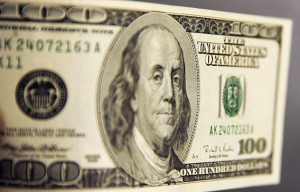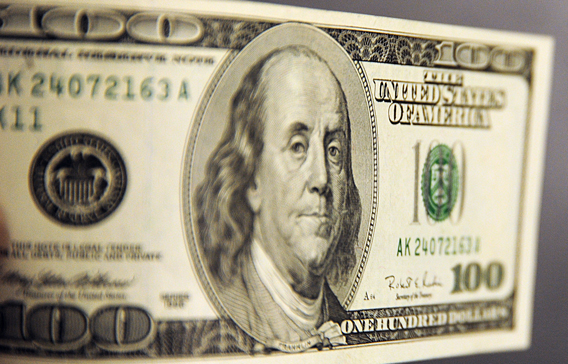
(AFP photo)
By Hossam Mounir
Foreign transactions in Egypt recorded a $1bn deficit in the balance of payments in the first nine months of the current fiscal year (FY) 2014/2015, according to the Central Bank of Egypt (CBE).
These figures compare to a surplus of $2.2bn during the same period in the last FY 2013/2014, the CBE added.
The CBE added that the balance of services and income achieved a surplus amounting to $4.2bn, as a result of an increase in tourism revenues, which curbed the deficit somewhat. Moreover, the net capital and financial account gained $7bn due to the increase of foreign direct investments inflows, which contributed to controlling the deficit.
The CBE data also revealed that the current account deficit increased to $8.4bn during the first nine months of the current FY, compared to $543.1m during the same period in FY 2013/2014.
The significant current account deficit, according to the CBE, was due to the trade deficit increase of 22.7%, amounting to $29.6bn between July 2013 and March 2014. This compared to $24.1bn in the same period in FY 2013/2014. The CBE added that this increase was a result of a decrease of 13.8% in merchandise exports during the mentioned period, recording $16.9bn versus $19.6bn.
“The contraction in exports is traceable to the drop in oil exports receipts, in the wake of the decline in world prices of crude oil by 28.7% and 50.1% in Q2 and Q3 2014/2015, respectively, relative to the same quarters a year earlier,” the CBE said, adding that the exports of oil products also fell.
The report added that the crude oil exports represent 71.5% of the total oil exports, and 28.4% of the merchandise exports.
The CBE said non-oil exports remained almost at their same level during the period under review compared to the same period in the previous FY.
“Merchandise import bill increased by 6.3%, to register $46.3bn, against $43.7bn, mostly for non-oil imports,” announced the CBE.
The CBE data also showed net unrequited transfers decreased by 26.7% to record $16.9bn, compared to $23.1bn, as a result of the decrease in the net cash and commodities transfers, amounting to $2.6bn in comparison to $10bn.
In contrast, the balance of services and income, according to the CBE, achieved a surplus of $4.2bn, compared to $418.2m during the comparison period.
The report added that this surplus was due mainly to tourism revenues that increased to $5.5bn compared to $3.4bn, pushed by the 43.4% increase in tourist nights. Latest figures for this show tourists spent 73.4m nights, in comparison to the 51.2m nights of the previous year.
As for the capital and financial account, it recorded a net inflow of $7bn, compared to $2.9bn.
The CBE clarified that foreign direct investment in Egypt witnessed net inflows amounting to $5.7bn, compared to $3.1bn, of which $2.9bn were recorded between January and March 2015.
The net inflows of greenfield investments increased to $2.8bn in comparison to $1.7bn during the comparison period, while the oil investments sector increased to record $2bn, compared to $1.3bn previously. In the same context, the investments in real estate purchases amounted to $714.3m, compared to only $93.4m in the previous year.
Regarding the portfolio investment in Egypt, it achieved a net outflow of $2.1bn compared to $1.2bn net inflow. The increase mainly came as a result of paying the bonds that had fallen due in the mentioned period.
“Meanwhile, foreigners’ net investments on EGX increased, unfolding net purchases of $450.9m, compared to $379.5m,” the CBE said.
The CBE said its liabilities recorded a net outflow of $525.5m in the first nine months of FY 2014/2015, compared to a net inflow of $2bn in the comparison period, due to the repayment of the deposits to some Arab countries.




